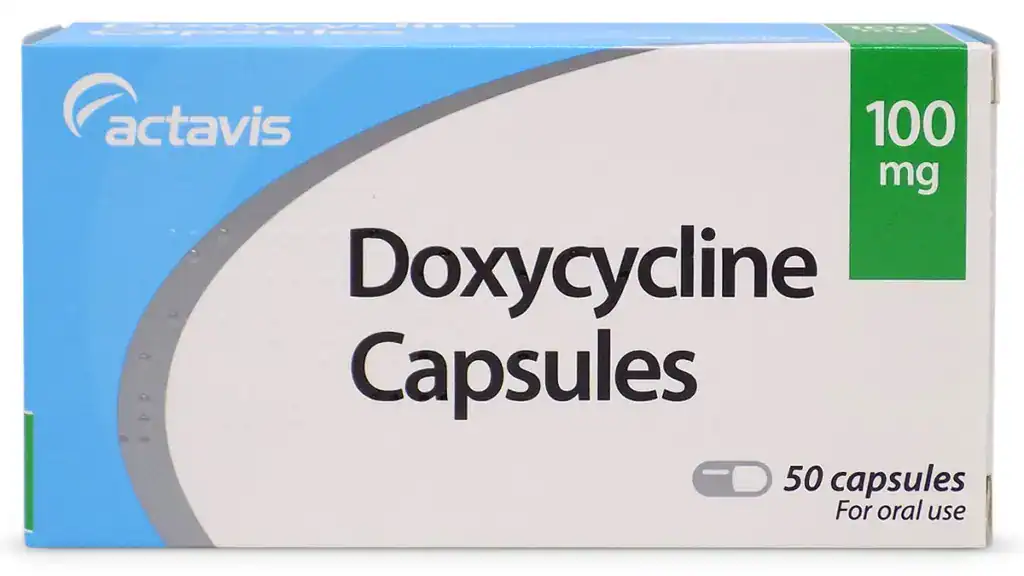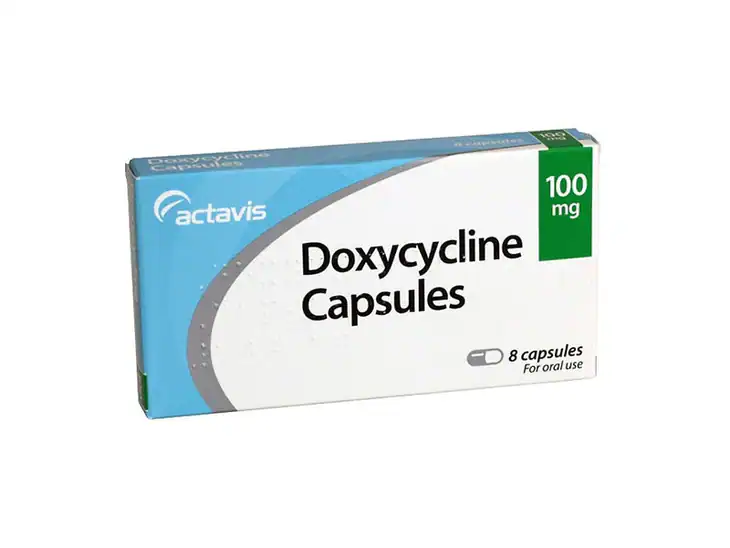Doxycycline is a broad-spectrum antibiotic belonging to the tetracycline class. It is effective against a wide range of bacteria, making it a versatile option for treating infections in rats. Its primary function is to inhibit bacterial protein synthesis, which stops bacteria from growing and multiplying.
The effectiveness of doxycycline lies in its ability to interfere with bacterial protein synthesis. By binding to the 30S ribosomal subunit, doxycycline prevents the addition of amino acids to the growing polypeptide chain, effectively halting bacterial growth. This mode of action not only stops the bacteria from multiplying but also helps the rat’s immune system to catch up and eliminate the infection.
Doxycycline is not limited to one type of infection. It is commonly used to treat respiratory infections, urinary tract infections, and skin infections in rats. Its broad-spectrum action allows it to target multiple types of bacteria simultaneously, making it a go-to antibiotic when the specific bacterial cause is uncertain.
Doxycycline is available in several formulations, including tablets, capsules, and liquid forms. This variety allows for flexibility in administration, which is particularly useful in treating small animals like rats. The dosage can vary depending on the severity of the infection and the specific health condition of the rat, emphasizing the importance of veterinary guidance.
Common Uses of Doxycycline for Rats
Doxycycline is commonly prescribed to treat respiratory infections, which are prevalent in rats. These infections can be caused by various bacteria, including Mycoplasma pulmonis, a common culprit in respiratory illnesses among rodents. By targeting and eliminating the bacteria, doxycycline helps alleviate symptoms and improve the overall health of the rat.
Respiratory Infections
Respiratory infections are among the most common health issues in rats. Mycoplasma pulmonis, a significant bacterial pathogen, often leads to respiratory distress, sneezing, and nasal discharge. Doxycycline’s ability to target this bacterium makes it a first-line treatment option for respiratory infections, helping to clear up symptoms and prevent chronic complications.
Urinary Tract Infections
Urinary tract infections can be particularly uncomfortable for rats, leading to symptoms such as frequent urination, blood in urine, and lethargy. Doxycycline’s broad-spectrum nature allows it to effectively target the bacteria causing these infections, providing relief and preventing further complications.
Skin Infections
Skin infections in rats can result from bites, scratches, or bacterial invasions. Doxycycline is effective in treating these infections by targeting the bacteria present on the skin. This treatment helps reduce inflammation, prevents the spread of infection, and promotes healing of the affected area.
Advantages of Using Doxycycline
1. Broad-Spectrum Efficacy
One of the primary benefits of doxycycline is its ability to target a wide range of bacteria. This makes it an excellent choice for treating infections when the specific bacteria causing the illness are unknown.
Versatile Application
Broad-spectrum antibiotics like doxycycline are invaluable in veterinary medicine due to their versatility. They can be used in various scenarios, especially when time is of the essence, and waiting for culture results is not feasible. This makes doxycycline a preferred choice when dealing with acute infections.
Targeting Multiple Pathogens
Doxycycline’s capability to target multiple pathogens means it can address mixed infections, where more than one type of bacterium is present. This ensures comprehensive treatment, reducing the likelihood of lingering infections that could compromise a rat’s health.
Reduced Need for Immediate Identification
The ability to use doxycycline without immediate identification of the bacteria means that treatment can begin quickly. This rapid response is crucial in managing infections early and effectively, potentially reducing the severity and duration of the illness.
2. Effective Against Resistant Bacteria
Doxycycline is particularly useful in treating infections caused by antibiotic-resistant bacteria. Its unique mechanism of action allows it to bypass some of the resistance mechanisms that other antibiotics may face.
Overcoming Resistance Mechanisms
Bacterial resistance poses a significant challenge in treating infections. Doxycycline’s mechanism of action allows it to circumvent many common resistance strategies employed by bacteria, making it a powerful tool against resistant strains.
Continued Efficacy
In an era where antibiotic resistance is a growing concern, doxycycline remains effective against many resistant bacteria. This continued efficacy makes it a reliable option for veterinarians dealing with complicated cases.
Combining with Other Treatments
In some instances, doxycycline can be used in conjunction with other antibiotics to overcome resistance. This combination therapy can enhance treatment outcomes, ensuring that even the most stubborn infections are addressed effectively.
3. Convenient Administration
Doxycycline is available in various forms, including tablets, capsules, and liquid formulations. This versatility allows for easy administration, which is especially important when treating small animals like rats.
Tailored Dosing Options
The availability of different formulations means that dosing can be tailored to the specific needs of the rat. Liquid formulations, for instance, can be easier to administer to rats that have difficulty swallowing pills.
Ease of Use for Caregivers
Convenient administration is not just beneficial for the rat but also for the caregiver. Easy-to-administer options reduce stress for both the animal and its owner, ensuring that the treatment regimen is followed correctly.
Flexible Treatment Plans
The variety in doxycycline formulations allows for flexible treatment plans. Whether a rat requires a long-term treatment course or a short, intensive therapy, doxycycline can be adapted to meet these needs effectively.
4. Combination with Other Antibiotics
In some cases, doxycycline may be used in combination with other antibiotics, such as Baytril (enrofloxacin), to enhance its effectiveness. This combination can provide a more comprehensive approach to treating severe or persistent infections.
Synergistic Effects
Combining doxycycline with other antibiotics can produce synergistic effects, where the combined action of the drugs is greater than the sum of their individual effects. This can be particularly beneficial in tackling severe infections.
Enhanced Treatment Outcomes
By using a combination of antibiotics, veterinarians can tailor treatment plans to target different aspects of the infection. This enhances treatment outcomes, ensuring a higher success rate in managing complex health issues.
Addressing Persistent Infections
Persistent infections can be challenging to treat, often requiring a multifaceted approach. The combination of doxycycline with other antibiotics can address these stubborn infections more effectively, providing a comprehensive solution.
Potential Side Effects of Doxycycline

While doxycycline is generally safe for rats, it is essential to be aware of potential side effects. These may include:
- Gastrointestinal upset, such as nausea or diarrhea
- Photosensitivity, leading to increased sensitivity to sunlight
- Discoloration of teeth in young rats
Gastrointestinal Effects
Gastrointestinal upset is one of the more common side effects of doxycycline. Rats may experience symptoms such as nausea or diarrhea, which can lead to dehydration if not managed appropriately. It is crucial to monitor their food and water intake and ensure they remain hydrated throughout the treatment.
Photosensitivity
Photosensitivity is another potential side effect, where rats may become more sensitive to sunlight. This can lead to skin irritation or sunburn, particularly in areas with less fur coverage. To mitigate this, ensure that your rat has access to shaded areas and is not exposed to direct sunlight for prolonged periods.
Dental Discoloration
Doxycycline can cause discoloration of teeth in young rats, as it affects the development of enamel. This cosmetic side effect does not typically impact overall health but can be a consideration for owners concerned about their rat’s appearance. Dental monitoring and regular check-ups can help manage this issue.
Precautions and Considerations
Before administering doxycycline to your rat, consider the following precautions:
- Consult a Veterinarian: Always seek professional advice before starting any antibiotic treatment. A veterinarian can provide the appropriate dosage and duration for your rat’s specific condition.
- Avoid Overuse: Overuse of antibiotics can lead to resistance, making future infections harder to treat. Use doxycycline only when necessary and follow the prescribed dosage.
- Monitor for Side Effects: Keep a close eye on your rat for any adverse reactions. If you notice symptoms such as persistent diarrhea, lethargy, or unusual behavior, consult your veterinarian promptly.
- Adhere to Guidelines: Following the veterinarian’s guidelines for administering doxycycline is crucial. Proper adherence helps maximize the treatment’s effectiveness while minimizing potential side effects.
- Consider Long-Term Health: Think about the long-term health implications of antibiotic use. Ensure that doxycycline is the most appropriate choice for your rat’s condition and that alternative treatments have been considered.
Where to Buy Doxycycline for Rats

Finding doxycycline for rats can be challenging, especially if you are seeking it without a vet prescription. However, there are several options available:
Veterinary Clinics
The most reliable source for doxycycline is through a veterinarian. They can prescribe the appropriate dosage and ensure that the antibiotic is necessary for your rat’s condition.
Professional Guidance
Veterinary clinics offer the advantage of professional guidance, ensuring that the antibiotic is administered correctly. Veterinarians can assess your rat’s specific condition and provide a treatment plan tailored to its needs.
Assurance of Quality
Purchasing doxycycline through a veterinary clinic guarantees the quality and authenticity of the medication. This assurance is crucial in ensuring that your rat receives safe and effective treatment.
Access to Comprehensive Care
Veterinary clinics provide more than just medication; they offer comprehensive care, including follow-up consultations and adjustments to the treatment plan as needed. This holistic approach ensures the best possible outcomes for your rat’s health.
Online Pet Pharmacies
Some online pet pharmacies offer doxycycline for sale, often requiring a prescription from a veterinarian. Ensure that you are purchasing from a reputable source to guarantee the quality and safety of the medication.
by Elen Sher (https://unsplash.com/@lenochka210292)
Convenience and Accessibility
Online pet pharmacies offer the convenience of ordering medication from the comfort of your home. This accessibility is particularly beneficial for those with limited access to local veterinary services.
Verification of Sources
It is crucial to verify the credibility of the online pharmacy before making a purchase. Look for reviews, certifications, and accreditations to ensure that you are dealing with a legitimate provider.
Prescription Requirements
Most reputable online pharmacies will require a veterinary prescription, ensuring that the medication is appropriate for your rat’s condition. This requirement serves as an additional layer of safety and efficacy in treatment.
Over-the-Counter Options
In some cases, doxycycline may be available over the counter, particularly in countries with more lenient regulations. However, it is crucial to exercise caution and ensure that the product is suitable for use in rats.
Understanding Regulations
Different countries have varying regulations regarding the sale of antibiotics. Familiarize yourself with the local laws and guidelines to ensure that you are compliant when purchasing over-the-counter doxycycline.
Evaluating Product Suitability
When considering over-the-counter options, it is essential to evaluate whether the product is suitable for your rat. Pay attention to the formulation, dosage, and intended use to avoid potential health risks.
Consulting a Professional
Even if doxycycline is available over the counter, consulting with a veterinarian is recommended. Professional input can help confirm the appropriateness of the medication and prevent misuse or overuse.
Conclusion
Doxycycline is a valuable antibiotic for treating various bacterial infections in rats. Its broad-spectrum efficacy, ability to combat resistant bacteria, and convenient administration make it a popular choice among veterinarians. However, it is essential to use doxycycline responsibly and under the guidance of a professional to ensure the health and well-being of your pet rat.
Informed Decision-Making
By understanding the benefits and potential side effects of doxycycline, you can make informed decisions about your rat’s healthcare needs. Whether dealing with a respiratory infection or another bacterial issue, doxycycline can be an effective tool in maintaining your rat’s health.
Professional Guidance
Remember, always consult a veterinarian before starting any treatment to ensure that you are providing the best care possible for your furry friend. Veterinary expertise is invaluable in navigating the complexities of rat health and ensuring optimal treatment outcomes.
Commitment to Health
A commitment to responsible antibiotic use reflects a broader commitment to your rat’s long-term health. By prioritizing professional guidance and adhering to treatment plans, you can support your rat in leading a healthy, happy life.



